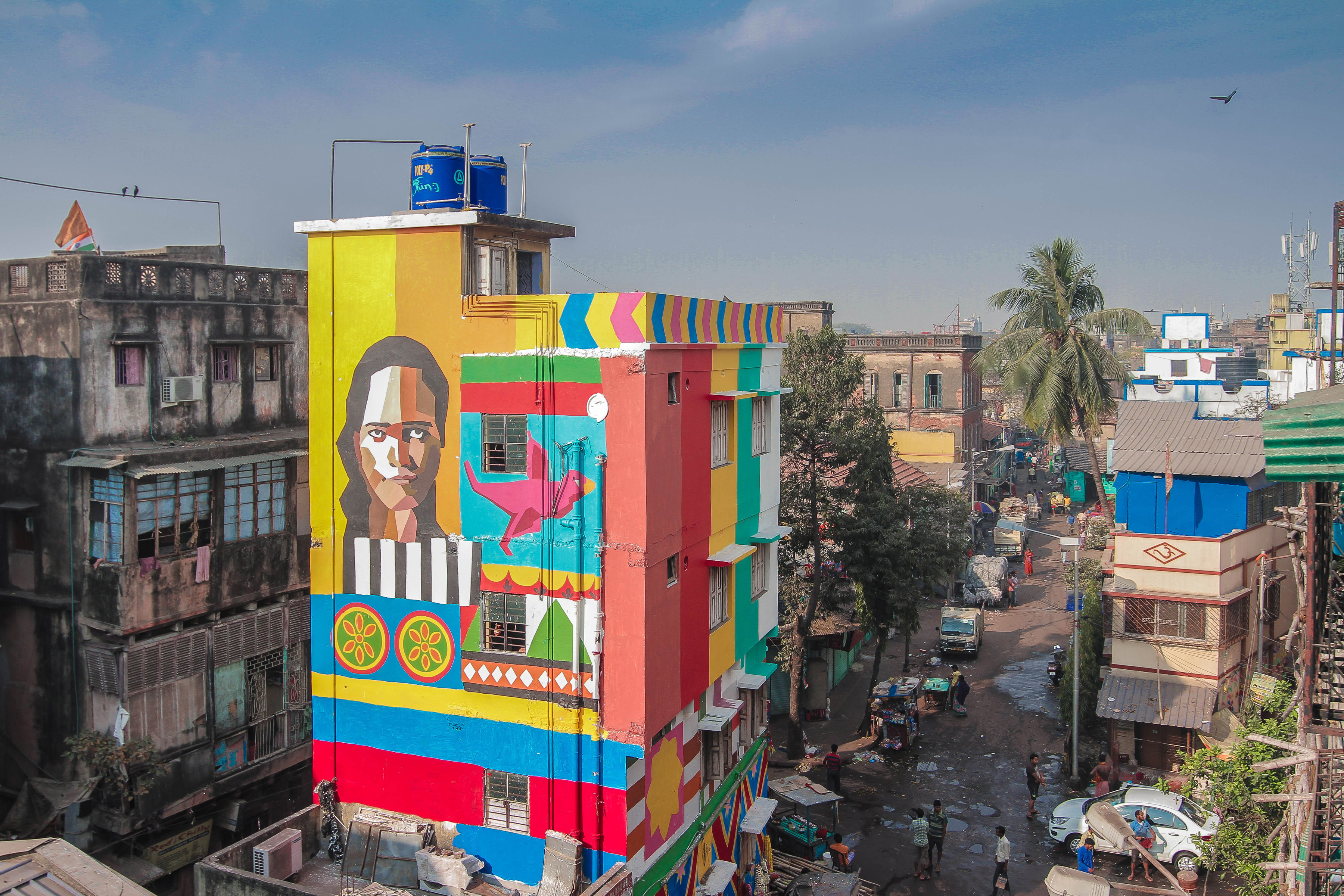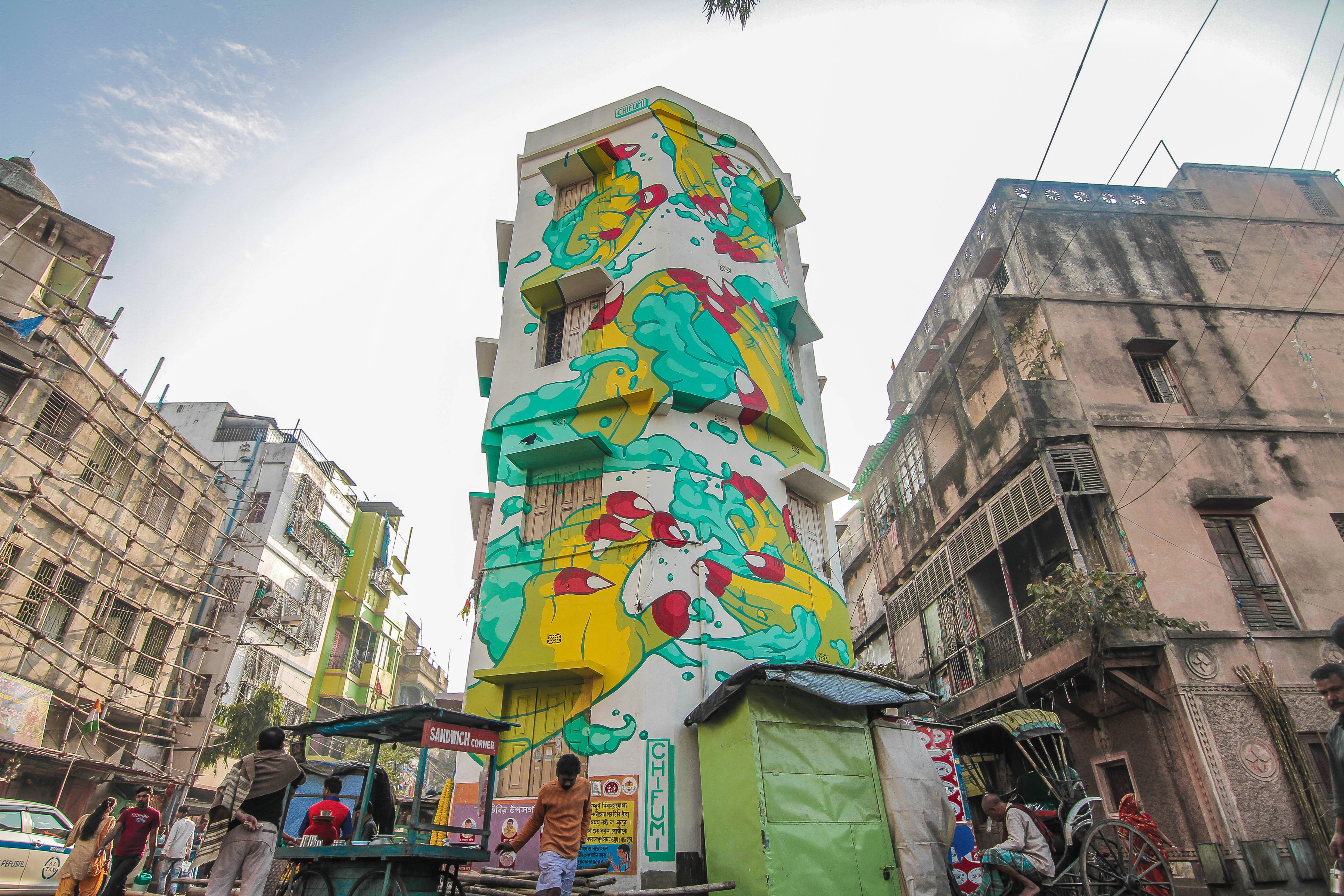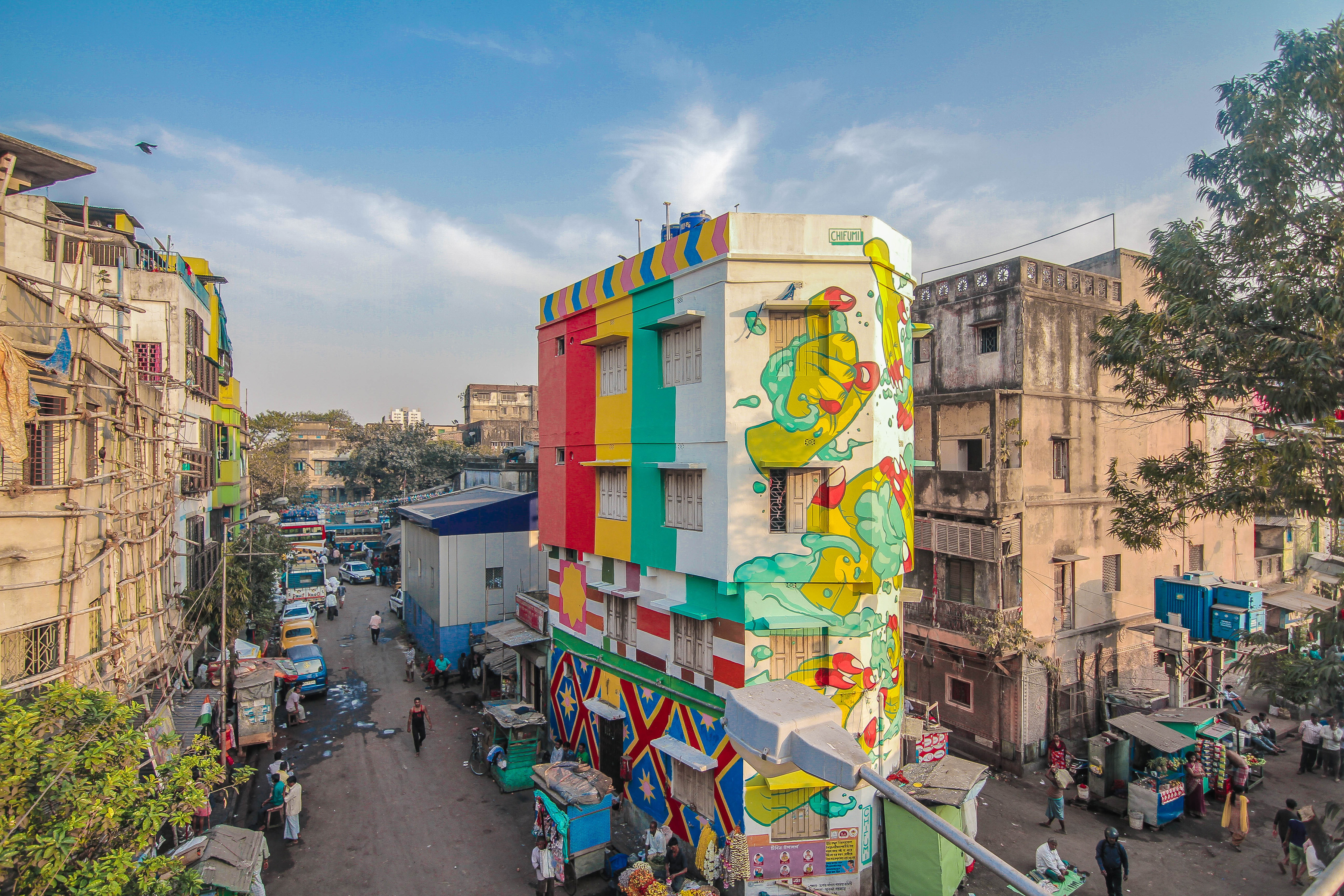Located in Kolkata, Sonagachi is India’s largest red-light district, with close to 11,000 sex workers inhabiting numerous of its multi-storey brothels. In 2018, the area became the setting for our first street art project in the city.
As an area. Sonagachi is often mentioned in terms of being a blight on Kolkata’s map - the city that’s commonly referred to as the ‘cultural capital of India’. Its residents continue to be stigmatised and discriminated against, not being accorded any space in Kolkata’s ‘bhadrapaara’.
For St+art Kolkata 2018, we collaborated with a local NGO - the Durbar Mahila Samanwaya Committee (DMSC) in the area, along with the art collective ‘Aravani Art Project’ and French artist Chifumi to create works which would enable in breaking of the stigma associated with the region through art.
Formally organised in 1995, the DMSC has advocated for the sex workers’ rights to better sexual health since its inception. To humanize Sonagachi’s inhabitants in the city’s collective imagination, Chifumi and the Aravani Art Project worked under the theme of ‘The Unseen’, creating artwork on the walls of the office of the DMSC.
The Aravani Art project - an art collective based out of Bangalore, working on creating safe spaces for the transgender community through public art interventions, conceptualised and executed the first mural using a participatory approach. It was completed over a period of 2 weeks, and several locals and members of the transgender community contributed to the artwork.
Their artwork sought to act as an archetypal representation of transgenders and sex workers, putting forward a message of empowerment. Giving light to marginalised communities, alongside regenerating the building of the Durbar Committee, the mural’s protagonist conveys that they have the right to be respected despite their work because they are not defined by what they do, but rather by who they are as people.
French artist Chifumi’s piece, on another wall of the building, contributed to the theme of the festival by drawing attention to the transgender community. His piece created the clap unique to the community in vibrant colours on the walls of the DMSC office.
In his signature way of communicating with hand gestures which can be universally recognised, Chifumi drew the clap that is unique to the transgender community in India on one the DMSC’s walls. Chifumi first observed the clap upon his maiden visit to India, and decided to incorporate it in his piece to bring attention to the ‘Unseen of Kolkata’.


